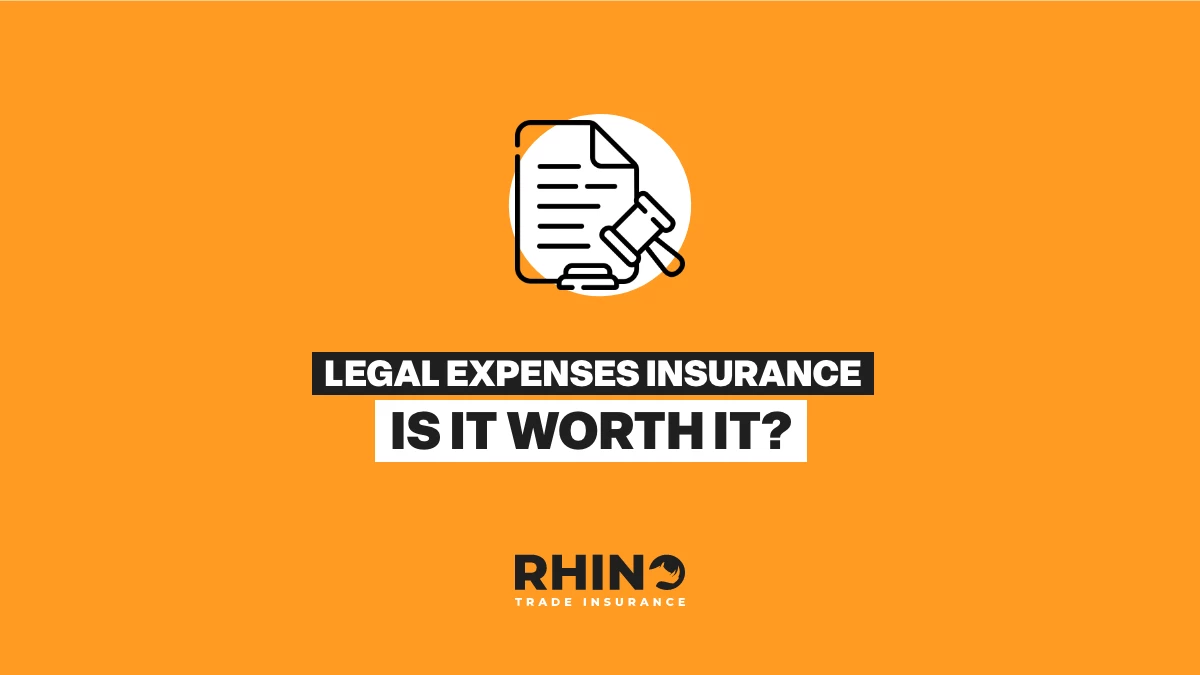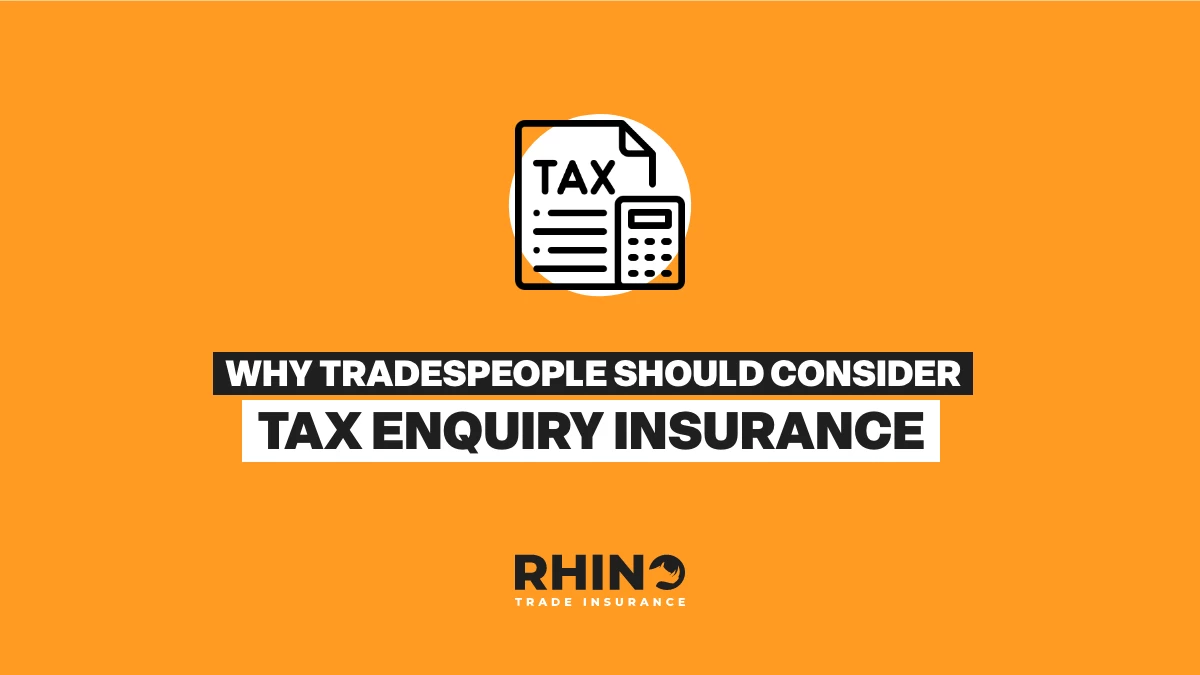
Legal Expenses Insurance – Is it Worth It?
Legal Expenses Insurance for tradespeople explained—what it covers, when you might need it, and how it protects against costly legal fees.
For tradesmen and women in the UK, the question of whether to buy or lease a work van is one that may be in the back of your mind. The van you choose will play a role in the success of your business, impacting everything from your transport and storage to overall work efficiency.
Today, we'll explore the pros and cons of both buying and leasing a new work van, helping you to make a better decision that works for your business goals and financial circumstances.
Ownership and Equity:
One of the primary advantages of buying a work van is ownership. When you purchase a van outright, you gain full ownership and build equity in the asset. This means that as you make payments, you are gradually increasing your stake in the van. Eventually, once the loan is paid off, you own the van outright, and it becomes a valuable asset for your trade business.
Total Control:
Ownership translates to total control over the van. You have the freedom to customise and modify the van according to your business needs. Whether it's installing specialised storage racks or branding the van with your company logo, ownership provides the flexibility to make decisions without restrictions imposed by a leasing agreement.
Long-Term Cost Savings:
While the initial cost of purchasing a van may be higher than leasing, in the long run, buying often proves to be more cost-effective. Once you've paid off the loan, you eliminate monthly payments, reducing your operational expenses significantly. This cost savings becomes increasingly beneficial over the lifespan of the van.
Unlimited Mileage:
If your business involves extensive travel, buying might be the better option due to unlimited mileage. Leasing agreements typically come with mileage restrictions, which (if exceeded) these limits can result in costly penalties. With a purchased van, you have the freedom to drive as much as necessary without worrying about additional charges.
Higher Initial Costs:
The upfront cost of buying a new work van is a major consideration. Purchasing a van requires a substantial initial investment, which may strain your business's finances, especially if you're just starting.
Depreciation:
Like any vehicle, a work van depreciates over time. While ownership builds equity, the van's value decreases, affecting its resale value. This depreciation can be a significant factor if you plan to upgrade your van in the future.
Maintenance Costs:
As the van owner, you are responsible for all maintenance costs. While new vans typically come with warranties that cover repairs for the first few years, maintenance expenses can increase as the van ages. This aspect should be factored into your overall cost analysis.
Lower Initial Costs:
Leasing a work van requires a lower upfront cost compared to buying. This is advantageous for trade businesses with lower budgets or those looking to allocate funds to other aspects of their work.
Newer Models and Technology:
Leasing means you can upgrade to newer models with the latest technology more regularly. This can be especially beneficial for trades that rely on advanced features or for businesses looking to maintain a professional image with a fleet of modern vehicles.
Predictable Monthly Expenses:
With a lease, you have fixed monthly outgoings, making it easier to manage and plan for your business expenses. This consistency can be a significant advantage, especially for smaller trade businesses with fluctuating incomes.
Lower Maintenance Costs:
Most leased vans are under warranty during the lease period, covering the cost of many repairs and maintenance services. This can result in lower maintenance expenses compared to owning a van, particularly in the first few years.
No Ownership or Equity:
Perhaps the most significant drawback of leasing is that you don't own the van. At the end of the lease term, you return the van and have nothing to show for the payments made. This lack of ownership means you don't build equity or have a valuable asset to sell or trade.
Mileage Restrictions:
Leasing agreements typically come with mileage restrictions, and exceeding these can result in costly penalties. This can be a major setback for businesses with high mileage requirements.
Customisation Limitations:
Leasing agreements often come with restrictions on customisation. You may be limited in your ability to modify the van to suit your specific business needs or brand image. This lack of flexibility can have an impact on trade businesses that require a customised work environment.
Long-Term Cost:
While leasing may have lower monthly payments, the cumulative cost over several years may exceed the cost of buying a van outright. If you plan to use the van for an extended period, leasing may not be the most cost-effective option in the long run.
Now that we've explored the advantages and drawbacks of both buying and leasing a work van, how do you decide which option is right for your trade business? Consider the following factors:
Financial Position:
Evaluate your current financial situation. If your business has the capital to make a substantial upfront payment and can comfortably handle the ongoing costs associated with ownership, buying may be a suitable option.
Usage Requirements:
Assess your business's mileage needs. If your work requires varied travel and the potential for exceeding mileage limits is high, buying may be a more practical choice.
Long-Term Plans:
Consider your long-term business plans. If you anticipate using the van for many years and value the idea of ownership and equity, buying may align better with your goals. On the other hand, if you prefer the flexibility of regularly upgrading to newer models, leasing might be a more suitable option.
Customisation Needs:
Evaluate your need for customisation. If you are a carpenter, electrician or plumber and your business relies on a tailored work environment inside the van, buying allows you the freedom to make modifications. If customisation is less critical, leasing may still be a viable option.
Operational Budget:
Examine your budget and cash flow. Leasing provides a more predictable monthly expense, making it easier to manage your general budget. If stability in monthly costs is a priority, leasing may be the preferable choice.
Resale Considerations:
If the potential resale value of the van is essential to your financial strategy, buying becomes more attractive. However, if you prioritise consistently driving the latest models, leasing may be a more suitable option. When it comes to getting yourself a new work van, there are various considerations, but it ultimately comes down to your preference.
The decision to buy or lease a new work van is entirely down to your needs. Both options have their benefits and negatives, and the right choice hinges on your financial situation, usage requirements, and long-term plans.
Ultimately, whether you decide on buying or leasing a new work van, careful consideration of your business's unique needs and financial position is crucial. By weighing the pros and cons outlined in this guide, you can make an informed decision that aligns with your trade business goals.
For more information on trade insurance and a quick and easy quote, get an amazing price for your next policy by calling our team. You can catch us on 0116 243 7904 or by inputting your details and getting a price online in seconds.
Legal Expenses Insurance for tradespeople explained—what it covers, when you might need it, and how it protects against costly legal fees.
Worried about a tax investigation? With HMRC cracking down in 2025, Tax Enquiry Insurance from Rhino gives UK tradespeople expert protection and peace of mind.
Rhino Trade Insurance CEO Troy Stevens joins industry leaders at the House of Commons to discuss the rising issue of tool theft—highlighting its impact on UK tradespeople and the importance of awareness and protection.
Tell us your trade and get a tailored insurance quote for your business in seconds
Our team of experts are available to talk to Mon-Fri 08.30-17.30 and Sat 10.00-14.00

